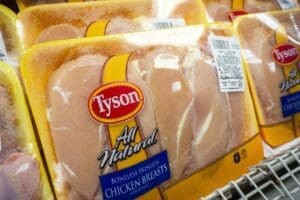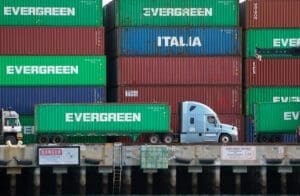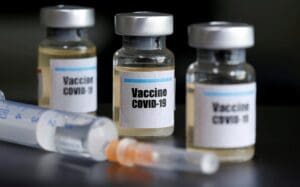 Baseball is back! Well, sort of. After a long series of negotiations, Major League Baseball and its players have finally agreed on a format to begin the 2020 season. The season is set to begin in late July and will be condensed to a 60-game schedule with a number of changes from a normal season. Unlike a normal season where every team plays every other team, this year, teams will only play teams from their 10-team division. For example, the Red Sox will only play against the East, with 40 games against the AL East and 20 games against the NL East. The DH will be used in both leagues, and if a game goes to extra innings, each half inning will begin with a runner on second to cut down on the length of games. The short season also poses a few interesting questions. For example, will anybody hit .400 this year? While Ted Williams was the last player to hit .400 in 1941, there have certainly been 60-game stretches where a player has hit .400 since then. Another interesting question is whether or not the best teams will make the playoffs. Last year’s World Series winner, the Washington Nationals, were 27-33 through 60 games, and would have missed the playoffs. The final question is how long can baseball last or will the season even start? Over the last few weeks, dozens of players have tested positive for coronavirus, mostly in team-centric clusters, thus placing the season in jeopardy. But for now, baseball is back. Oh, did I mention that stadiums will be empty due to coronavirus? And now on to this week’s logistics news.
Baseball is back! Well, sort of. After a long series of negotiations, Major League Baseball and its players have finally agreed on a format to begin the 2020 season. The season is set to begin in late July and will be condensed to a 60-game schedule with a number of changes from a normal season. Unlike a normal season where every team plays every other team, this year, teams will only play teams from their 10-team division. For example, the Red Sox will only play against the East, with 40 games against the AL East and 20 games against the NL East. The DH will be used in both leagues, and if a game goes to extra innings, each half inning will begin with a runner on second to cut down on the length of games. The short season also poses a few interesting questions. For example, will anybody hit .400 this year? While Ted Williams was the last player to hit .400 in 1941, there have certainly been 60-game stretches where a player has hit .400 since then. Another interesting question is whether or not the best teams will make the playoffs. Last year’s World Series winner, the Washington Nationals, were 27-33 through 60 games, and would have missed the playoffs. The final question is how long can baseball last or will the season even start? Over the last few weeks, dozens of players have tested positive for coronavirus, mostly in team-centric clusters, thus placing the season in jeopardy. But for now, baseball is back. Oh, did I mention that stadiums will be empty due to coronavirus? And now on to this week’s logistics news.
- CSCMP’s State of Logistics Report highlights pandemic’s effects on the industry
- More meat factory coronavirus clusters expected
- China suspends poultry imports from Tyson Foods
- Federal agents seize nearly 20,000 pounds at illegal meat at Ports of LA, Long Beach
- Mnuchin says U.S.-China decoupling will occur if firms cannot compete fairly
- Strain on the glass supply chain may delay COVID-19 vaccine
- Amazon forms ‘Counterfeit Crimes Unit,’ under pressure to escalate fight against fake products
- Ohio and Indiana team up to create freight corridor of the future
- Electric trucking infrastructure in the works for the West Coast
 The Council of Supply Chain Management Professionals (CSCSMP) released its 31st annual State of Logistics Report earlier this week. The report seeks to provide an in-depth look at the logistics industry, from logistics costs to emerging trends. At a high level, the report highlights that demand in some sectors, such as heavy industry and hospitality have plummeted while other sectors including grocery and e-commerce have soared. According to the report, “booming e-commerce and increasingly demanding consumers are fueling record-breaking growth in parcel and last-mile delivery. However, shippers and 3PLs are struggling to efficiently meet rapidly changing consumer delivery demands.” We will be digging deeper into the report for an upcoming article.
The Council of Supply Chain Management Professionals (CSCSMP) released its 31st annual State of Logistics Report earlier this week. The report seeks to provide an in-depth look at the logistics industry, from logistics costs to emerging trends. At a high level, the report highlights that demand in some sectors, such as heavy industry and hospitality have plummeted while other sectors including grocery and e-commerce have soared. According to the report, “booming e-commerce and increasingly demanding consumers are fueling record-breaking growth in parcel and last-mile delivery. However, shippers and 3PLs are struggling to efficiently meet rapidly changing consumer delivery demands.” We will be digging deeper into the report for an upcoming article.
In the US, major meat processing plants have shut down at varying times due to coronavirus outbreaks. And this is clearly not a US-centric problem. In the UK, there are rising fears that more factories will be shut down which could impact the meat supply chain abroad. According to Unite the Union, a British and Irish trade union, more meat factory coronavirus outbreaks are “likely” in the wake of news of three processing plants having clusters of cases. In the last two weeks alone, positive cases were confirmed at a 2 Sisters Food Group chicken plant in Llangefni, Wales, an Asda meat processing facility in Kirklees, West Yorkshire, and a Rowan Foods site in Wrexham, North Wales. These facilities have been shut down and it remains to be seen if more cases will pop up and what the effect on the meat supply chain will be.
 Speaking of coronavirus cases at meat processing plants, China has suspended imports of poultry from a Springdale, AR Tyson Foods facility. China’s General Administration of Customs office announced the suspension Sunday in a news release noting that hundreds of employees at the facility have tested positive for coronavirus. This is not the first outbreak at a Tyson Foods plants, which has forced operations to shut down in North Carolina, Nebraska, and Iowa. Late last week, Tyson Foods announced the results of COVID-19 testing at its facilities in Benton and Washington counties, AR. Of the 3,748 employees tested, 481 or 13 percent tested positive for COVID-19, with 455 or nearly 95 percent asymptomatic.
Speaking of coronavirus cases at meat processing plants, China has suspended imports of poultry from a Springdale, AR Tyson Foods facility. China’s General Administration of Customs office announced the suspension Sunday in a news release noting that hundreds of employees at the facility have tested positive for coronavirus. This is not the first outbreak at a Tyson Foods plants, which has forced operations to shut down in North Carolina, Nebraska, and Iowa. Late last week, Tyson Foods announced the results of COVID-19 testing at its facilities in Benton and Washington counties, AR. Of the 3,748 employees tested, 481 or 13 percent tested positive for COVID-19, with 455 or nearly 95 percent asymptomatic.
 While China has suspended imports of poultry from the US, federal agents have seized nearly 20,000 pounds of illegal meat arriving from China at the Los Angeles – Long Beach port in California. According to officials with US Customs and Border Protection, 19,555 pounds of prohibited pork, chicken, beef and duck products were intercepted. Most of the animal products were mixed in boxes of headphones, door locks, kitchenware, LCD tablets, trash bags, swim fins, cell phone covers, plastic cases and household goods in an effort to smuggle them into the country. According to the USDA’s Animal and Plant Health Inspection Service, meat from China must be closely inspected as the country is affected by African swine fever, classical swine fever, Newcastle disease, foot and mouth disease, highly pathogenic avian influenza, and swine vesicular disease.
While China has suspended imports of poultry from the US, federal agents have seized nearly 20,000 pounds of illegal meat arriving from China at the Los Angeles – Long Beach port in California. According to officials with US Customs and Border Protection, 19,555 pounds of prohibited pork, chicken, beef and duck products were intercepted. Most of the animal products were mixed in boxes of headphones, door locks, kitchenware, LCD tablets, trash bags, swim fins, cell phone covers, plastic cases and household goods in an effort to smuggle them into the country. According to the USDA’s Animal and Plant Health Inspection Service, meat from China must be closely inspected as the country is affected by African swine fever, classical swine fever, Newcastle disease, foot and mouth disease, highly pathogenic avian influenza, and swine vesicular disease.
On Tuesday, US Treasury Secretary Steven Mnuchin said that a decoupling of the US and Chinese economies will result if US companies are not allowed to compete on a fair and level basis in China’s economy. Mnuchin also said that he had every expectation that China would hold up to the terms agreed upon for the Phase 1 trade agreement, calling on China to increase purchases of US goods, energy, and services. Last month, I wrote that Chinese buyers have canceled a large number of soybean and pork order from the US, adding to the speculation that the trade agreement that was struck in January is in jeopardy as the two countries are still at odds. Mnuchin has since said “if we can compete with China on a fair and level playing field, it is a great opportunity for US businesses and US workers, as China has a large, growing middle class. But if we can’t participate and compete on a fair basis, then you are going to see a de-coupling going forward.”
 As the world continues to adjust to the new normal of coronavirus, we are also eagerly awaiting a vaccine. As of this writing, at least 11 vaccines have reached the clinical trial stage, which is pretty promising. However, there is now an unexpected bottleneck in the process: a shortage of glass vials. The rush to manufacture a vaccine has resulted in a rush to secure supplies. The issue with the glass supply chain is that the market is traditionally fixed, and slow growing. This means that it is also prone to shortages, such as this one. The relatively low number of glass manufacturers contributes to the issue. Experts are concerned that the slow market, paired with the lack of manufacturers and the exponential rise in demand, could lead to difficulty in producing the billions of vaccine doses needed.
As the world continues to adjust to the new normal of coronavirus, we are also eagerly awaiting a vaccine. As of this writing, at least 11 vaccines have reached the clinical trial stage, which is pretty promising. However, there is now an unexpected bottleneck in the process: a shortage of glass vials. The rush to manufacture a vaccine has resulted in a rush to secure supplies. The issue with the glass supply chain is that the market is traditionally fixed, and slow growing. This means that it is also prone to shortages, such as this one. The relatively low number of glass manufacturers contributes to the issue. Experts are concerned that the slow market, paired with the lack of manufacturers and the exponential rise in demand, could lead to difficulty in producing the billions of vaccine doses needed.
Amazon has made a strong push to eliminate counterfeit items from its marketplace. This became especially true as counterfeit protective equipment hit the market during the coronavirus pandemic. Now, Amazon has formed an internal “Counterfeit Crimes Unit” to bolster its fight against counterfeit products on Amazon.com, as the company seeks to show that it is tough on e-commerce crime. According to a news release, the new unit brings together former federal prosecutors with investigators and data analysts to “more effectively pursue civil litigation against bad actors, work with brands in joint or independent investigations, and aid law enforcement officials worldwide in criminal actions against counterfeiters.”
Ohio and Indiana have teamed up to promote autonomous driving technology to move freight between Columbus, OH and Indianapolis, IN. This is thanks to matching federal grants for the I-70 Truck Automation Corridor Project. The joint project, which will see nearly $9 million invested in the I-70 corridor, will use smart logistics solutions along the 175-mile stretch of I-70 between the two cities. The project allows freight companies and truck automation vendors to deploy partially automated trucks on I-70 between Columbus and Indianapolis. To ensure the safe deployment of these technologies on public roads, the Ohio-based Transportation Research Center (TRC) will offer professional driver training for participating fleets and perform an automation audit of I-70.
 Many truck manufacturers see electric trucks as the future of the industry. Now, California, Oregon, and Washington are making big plans for electric truck infrastructure for the West Coast. The project has been dubbed the West Coast Clean Transit Corridor Initiative, and it involves 9 utilities and a pair of agencies working in tandem. The plan is to create electric charging stations every 50 miles along Interstate 5 by 2025, with other highways included in the plan as well. The initial phase will include 27 stations for medium-duty vehicles, such as delivery vans. However, by 2030, more than half of these stations will be upgraded to also charge big rig trucks. California will have 16 of the charging stations, Oregon will have 5, and Washington will have 6. This is certainly an ambitious plan to make electric trucks a mainstay in the future of trucking.
Many truck manufacturers see electric trucks as the future of the industry. Now, California, Oregon, and Washington are making big plans for electric truck infrastructure for the West Coast. The project has been dubbed the West Coast Clean Transit Corridor Initiative, and it involves 9 utilities and a pair of agencies working in tandem. The plan is to create electric charging stations every 50 miles along Interstate 5 by 2025, with other highways included in the plan as well. The initial phase will include 27 stations for medium-duty vehicles, such as delivery vans. However, by 2030, more than half of these stations will be upgraded to also charge big rig trucks. California will have 16 of the charging stations, Oregon will have 5, and Washington will have 6. This is certainly an ambitious plan to make electric trucks a mainstay in the future of trucking.
That’s all for this week. Enjoy the weekend and the song of the week, Bruce Springsteen’s Glory Days.
















